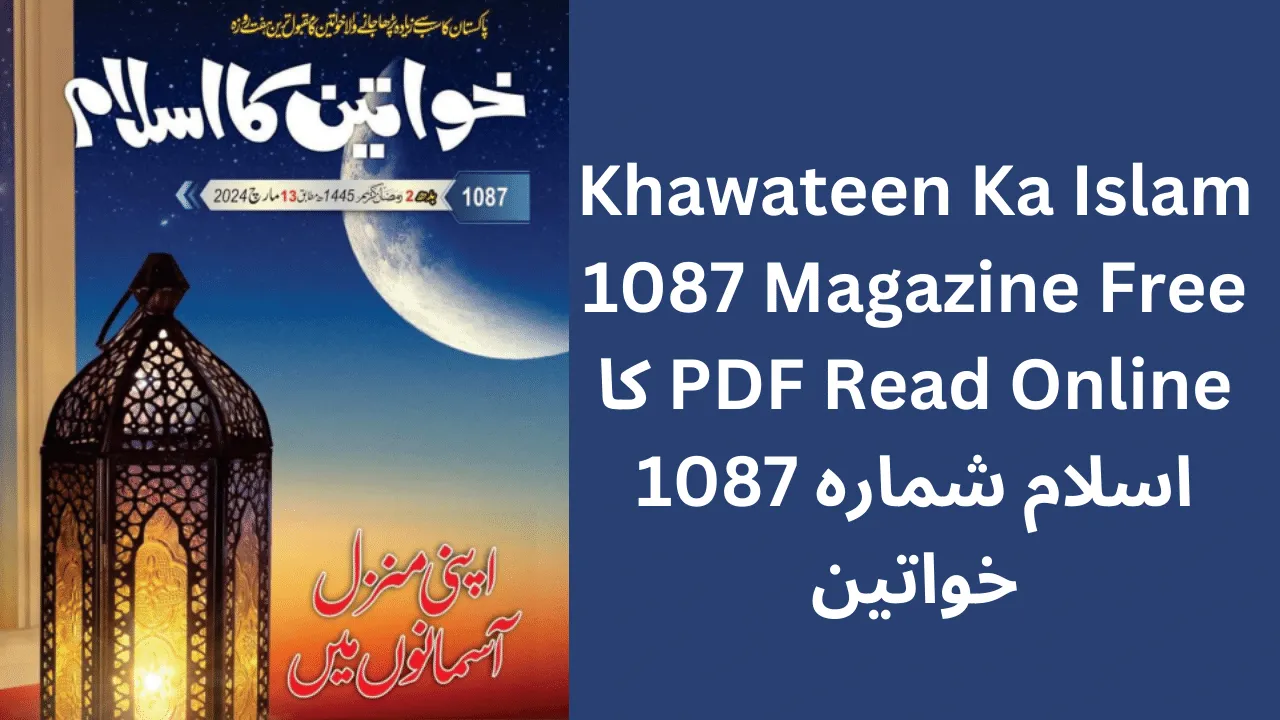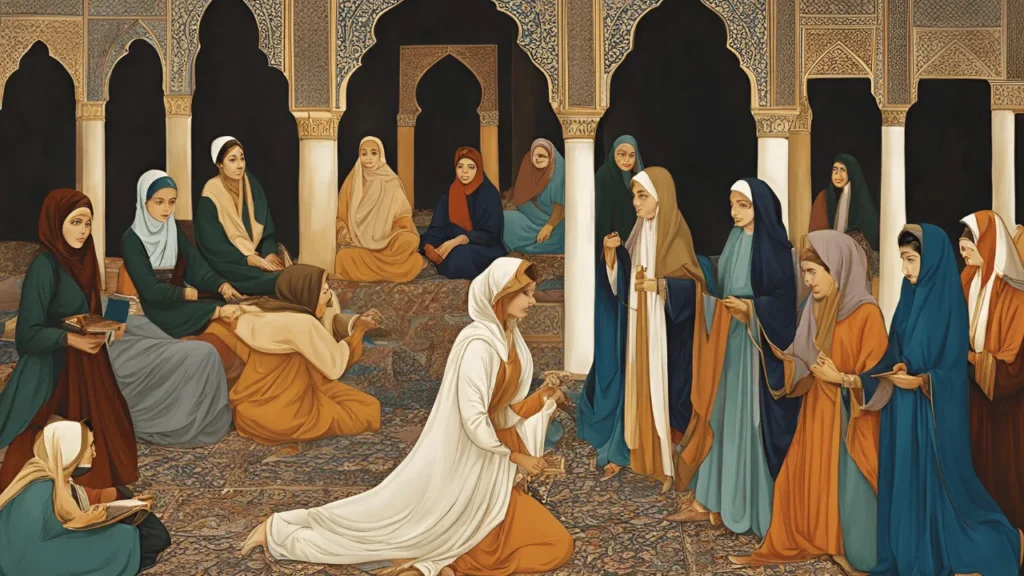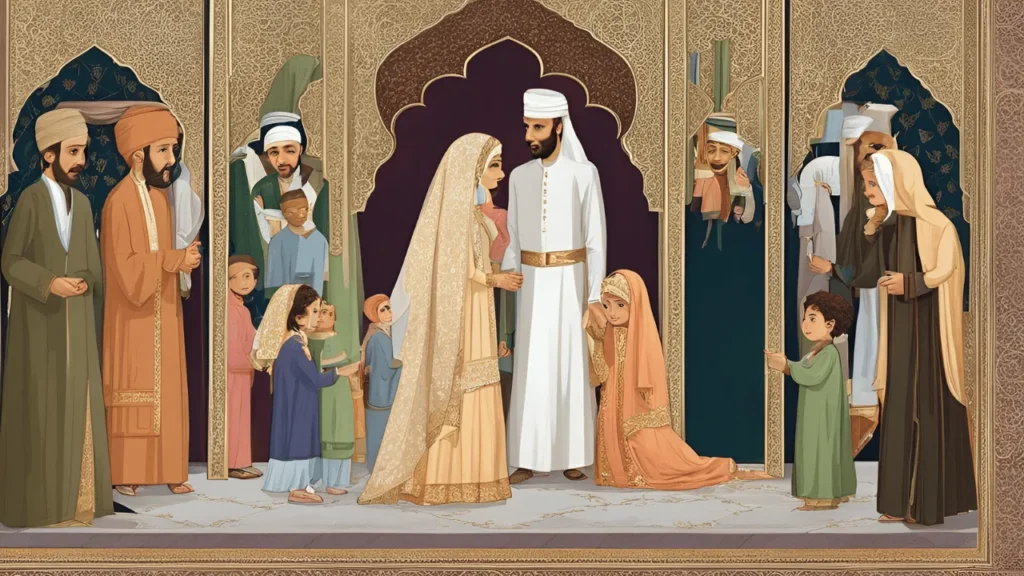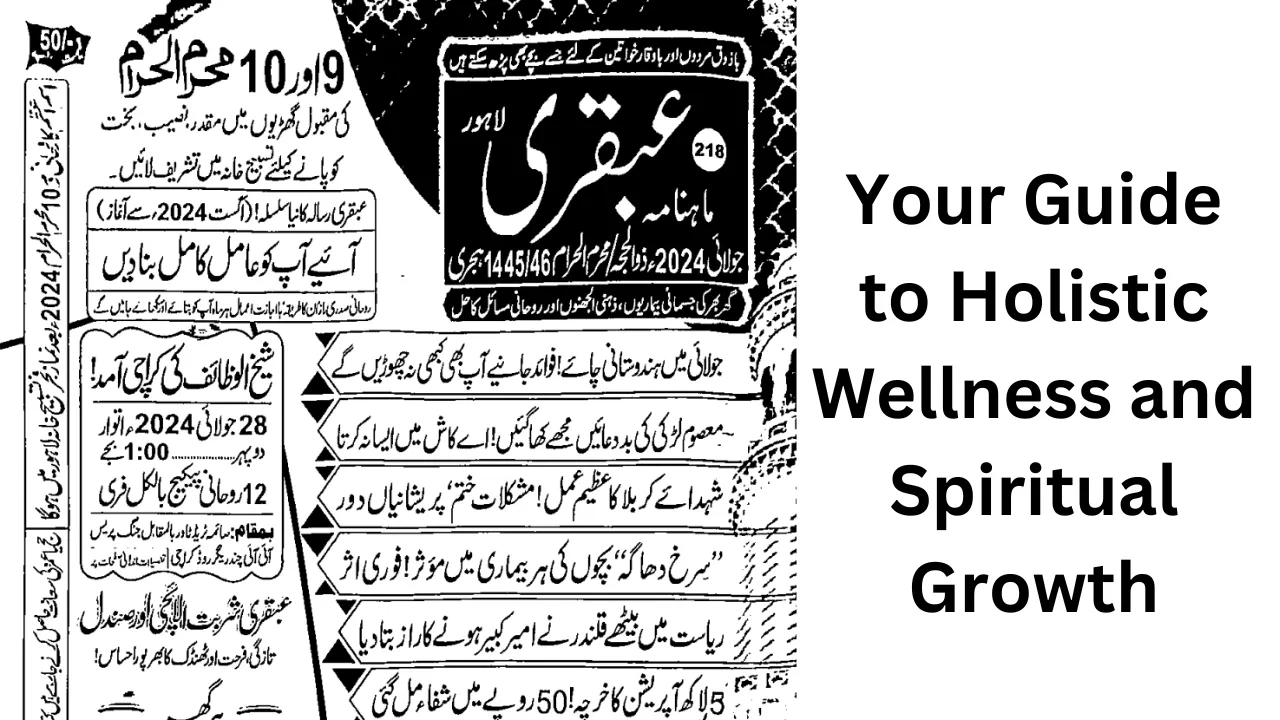Khawateen Ka Islam 1087 Magazine Free PDF Read Online کا اسلام شمارہ 1087 خواتین

Introduction
The role of women in Islam, or “Khawateen Ka Islam,” is a topic of significant importance and relevance. Women’s contributions and rights within Islam have often been misunderstood or misrepresented. This article aims to provide a comprehensive overview of the role, rights, and contributions of women in Islam, highlighting their importance in both historical and contemporary contexts.
Women in Islamic Theology
In Islamic theology, men and women are seen as equals in the eyes of Allah. Both genders are accountable for their actions and have similar spiritual and religious obligations. The Quran emphasizes that men and women were created from a single soul, underscoring their equality in humanity and spirituality.
Also, Check JWT World Times Magazine May 2024 Read Online
Historical Role of Women in Islam

From the earliest days of Islam, women have played vital roles in its development and propagation. Figures such as Khadijah bint Khuwaylid, the first wife of Prophet Muhammad (PBUH), who was a successful businesswoman, and Aisha bint Abi Bakr, a renowned scholar and teacher, exemplify the significant contributions of women in early Islamic history.
Women’s Rights in Islam
Islam grants women comprehensive rights that were revolutionary at the time of their revelation. These include:
- Legal Rights: Women have the right to inheritance, to enter into marriage with their consent, and to seek divorce.
- Social Rights: Women are entitled to education, the right to work, and the right to own property independently of their husbands or male relatives.
The Concept of Modesty and Hijab
Modesty is a key principle in Islam, and hijab is often seen as a symbol of this value. The hijab represents modesty, privacy, and morality, but its interpretation and practice can vary widely across different cultures and societies. It is important to understand hijab both as a personal act of faith and a cultural practice.
Women’s Education in Islam
Education is highly valued in Islam for both men and women. The Prophet Muhammad (PBUH) emphasized the importance of seeking knowledge, and women have historically been active in learning and scholarship. Prominent female scholars have contributed significantly to Islamic thought and jurisprudence.
Women’s Role in the Family
In Islam, women have a crucial role in the family as mothers, daughters, and wives. They are entrusted with the upbringing and education of children, which is considered a highly respected and valuable responsibility. At the same time, women are encouraged to pursue personal growth and professional aspirations.
Economic Rights of Women in Islam
Islamic teachings grant women the right to own, manage, and dispose of their property independently. Women can engage in business, trade, and other economic activities. The example of Khadijah, a successful businesswoman, serves as an inspiration for Muslim women in business.
Women in Islamic Leadership
Throughout Islamic history, women have held leadership roles in various capacities. From ruling as queens to leading armies and being influential scholars, women have demonstrated leadership and resilience. In contemporary times, women continue to break barriers and take on leadership roles in politics, education, and community activism.
Women’s Health and Well-being in Islam
Islam places a strong emphasis on health and well-being. Women are encouraged to take care of their physical and mental health and have access to healthcare and support systems. The Prophet Muhammad (PBUH) stressed the importance of health and the well-being of family members.
Misconceptions about Women in Islam
There are many misconceptions about the role and status of women in Islam. Common stereotypes include the belief that Islam oppresses women or limits their rights. Addressing these misconceptions requires understanding Islamic teachings and the historical and cultural contexts in which they are applied.
The Role of Women in Islamic Activism
Women have always been at the forefront of Islamic activism, advocating for social justice, education, and community development. Their efforts in promoting welfare, charity, and human rights have had significant impacts on societies worldwide.
Also, Check Ubqari Magazine May 2024 Read Online
Marriage and Family Life in Islam

Marriage in Islam is based on principles of mutual respect, love, and compassion. The roles of husbands and wives are complementary, with both partners responsible for creating a harmonious and supportive family environment. Women, as wives and mothers, are highly valued for their contributions to the family.
Women and Islamic Jurisprudence
Female scholars and jurists have made substantial contributions to Islamic jurisprudence. Their work in interpreting Islamic law and providing legal opinions has been critical in the development of Sharia and its application in different contexts.
Conclusion
Understanding the role of women in Islam requires a comprehensive approach that considers religious, historical, and cultural dimensions. Women have played and continue to play pivotal roles in Islamic societies, contributing to various fields and upholding the principles of their faith. Encouraging further study and promoting accurate understanding can help dispel misconceptions and highlight the true essence of women’s roles in Islam.
FAQs
Q1: What are some prominent examples of women in early Islamic history?
Prominent examples include Khadijah bint Khuwaylid, a successful businesswoman and the first wife of Prophet Muhammad (PBUH), and Aisha bint Abi Bakr, a renowned scholar and teacher.
Q2: How does Islam view the education of women?
Islam highly values education for both men and women. The Prophet Muhammad (PBUH) emphasized the importance of seeking knowledge, and many women have historically contributed to Islamic scholarship.
Q3: What rights do women have in Islamic law?
Women have rights to inheritance, education, work, property ownership, and entering into marriage with their consent. They can also seek divorce and manage their economic activities independently.
Q4: What is the significance of the hijab in Islam?
The hijab represents modesty, privacy, and morality. It is both a personal act of faith and a cultural practice, with its interpretation and practice varying widely across different societies.
Q5: How can misconceptions about women in Islam be addressed?
Misconceptions can be addressed by promoting accurate understanding through education, dialogue, and highlighting the true teachings of Islam regarding women’s rights and roles.













1 comment